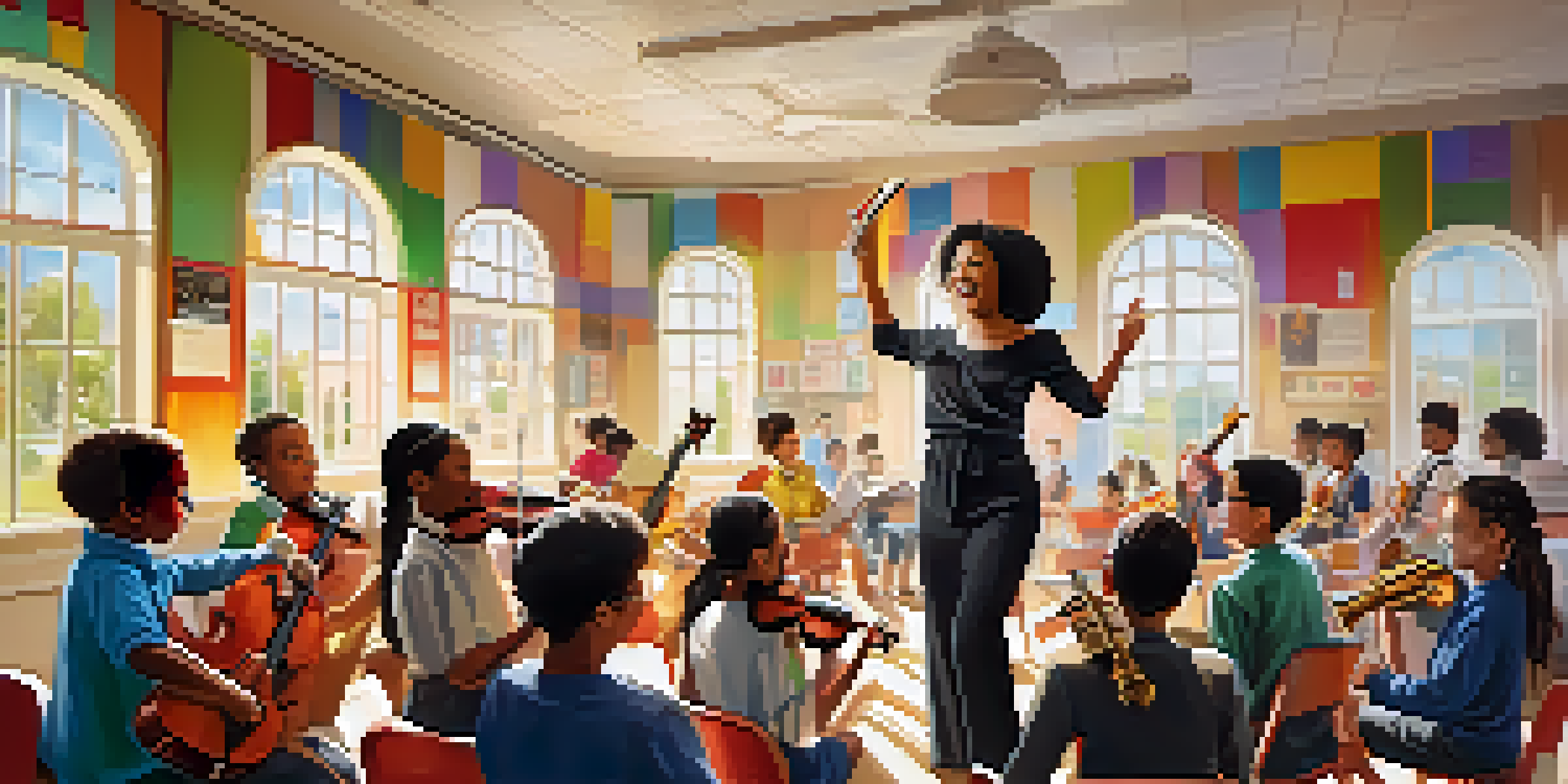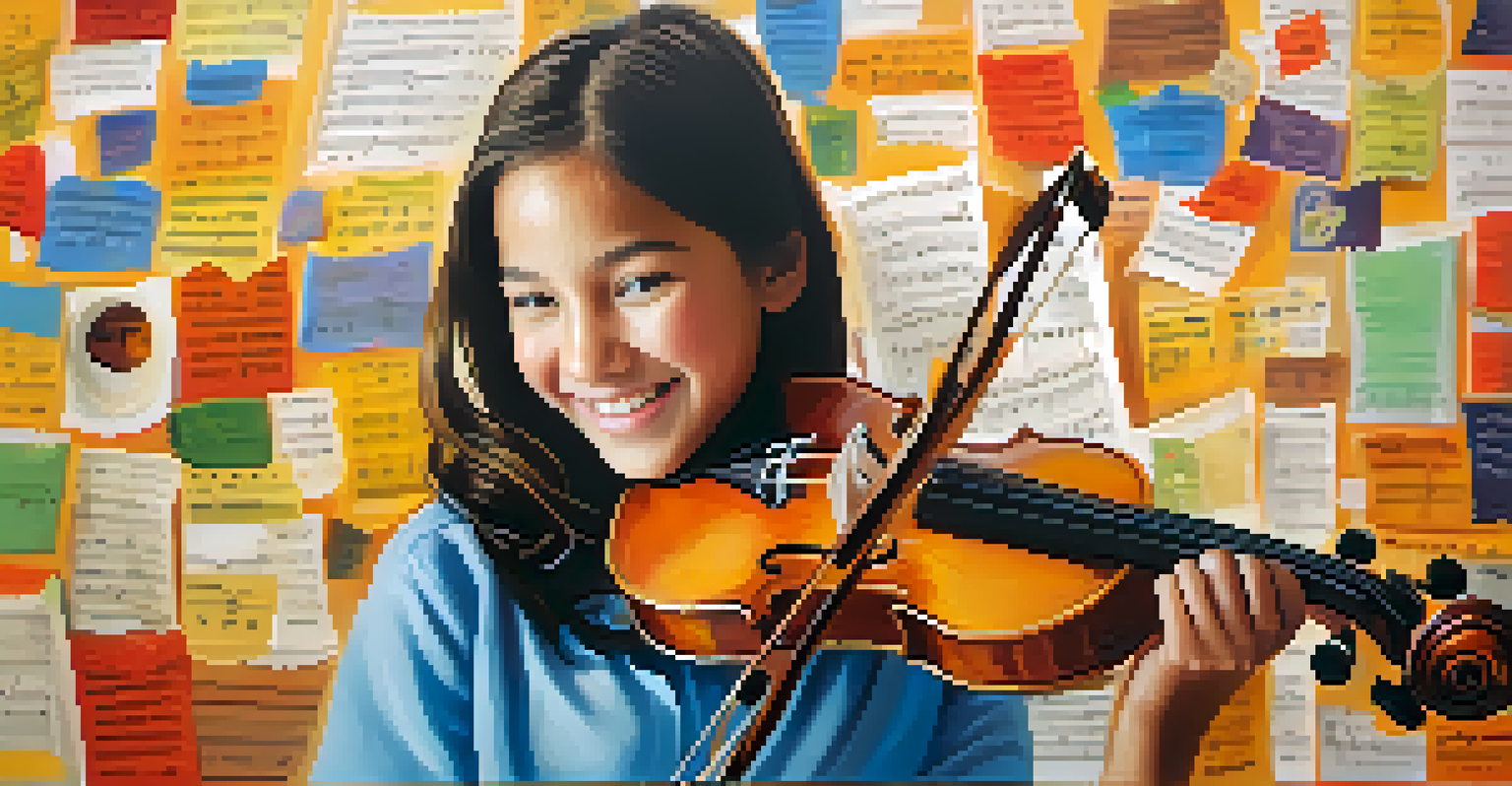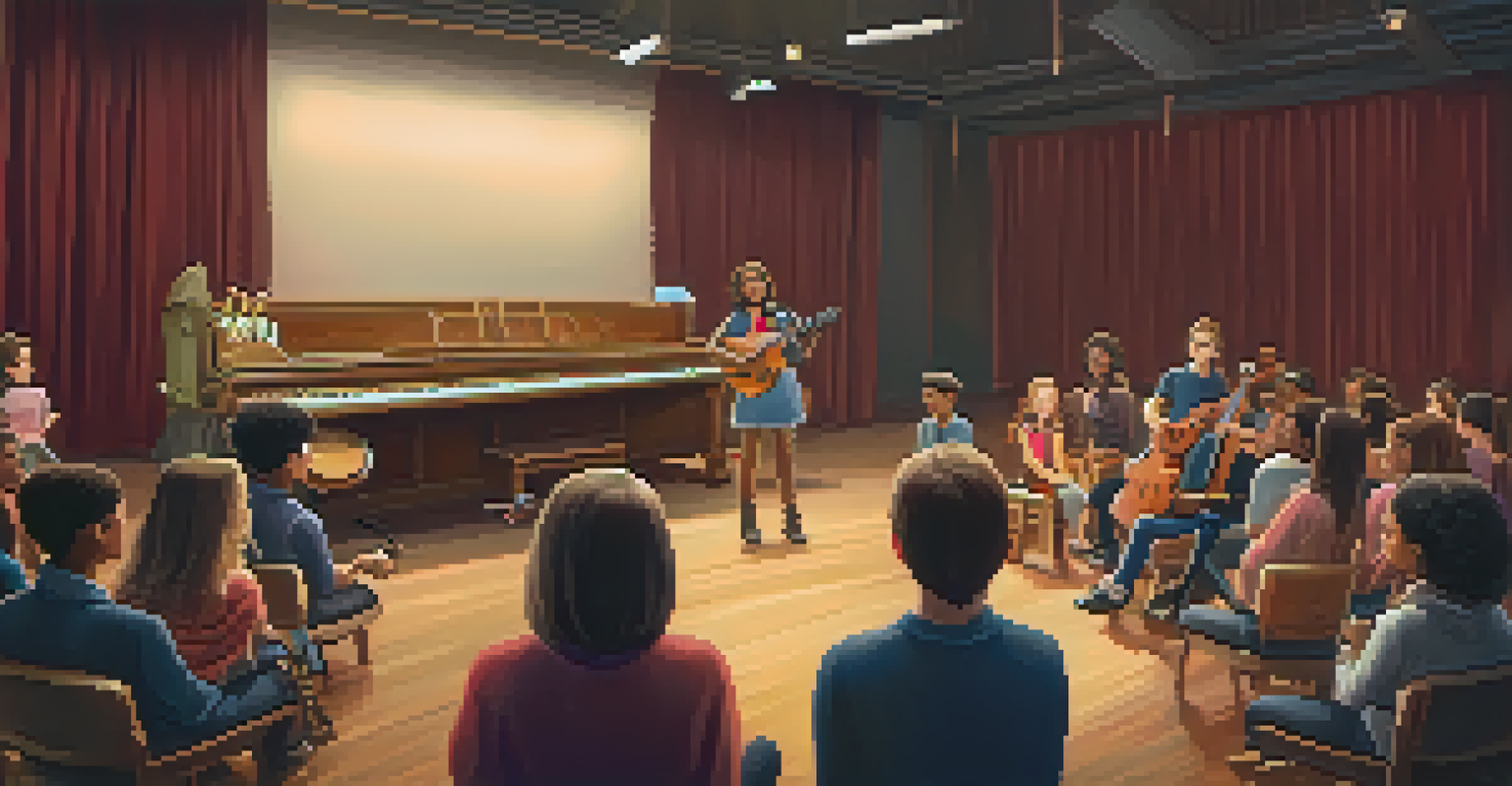Women in Music Education: Inspiring the Next Generation

The Vital Role of Women in Music Education
Women have been at the forefront of music education, providing invaluable guidance and mentorship. Their unique perspectives help shape the curriculum and inspire students to explore their musical talents. Whether in classrooms or community programs, women educators create nurturing environments where creativity can flourish.
Women are the largest untapped reservoir of talent in the world.
As role models, female music educators demonstrate that success in music is attainable for everyone. Their achievements encourage young girls to pursue their passions without fear. This representation is crucial in breaking down stereotypes about gender roles in the music industry.
Furthermore, women in music education often emphasize collaboration and inclusivity in their teaching styles. This approach fosters a sense of community among students, allowing them to learn from one another while developing their individual skills.
Breaking Barriers: Women in Music Leadership
Women are increasingly taking on leadership roles in music education, from department heads to administrators. These positions allow them to influence policy and promote gender equity within educational institutions. Their leadership helps reshape the narrative around women's contributions in music.

By advocating for equal opportunities, female leaders empower other women and girls to pursue careers in music. They challenge the status quo and work tirelessly to ensure that young musicians have the support they need to thrive. This commitment to change is crucial in fostering a more inclusive music community.
Empowering Women in Music Education
Women play a crucial role in music education, inspiring students and breaking down gender stereotypes.
Moreover, female leaders often prioritize mentorship programs, connecting aspiring musicians with experienced professionals. This not only enhances skill development but also builds a supportive network that can last a lifetime.
Innovative Teaching Methods by Women Educators
Women in music education are known for their innovative teaching methods that engage students more effectively. They often incorporate technology and diverse musical styles, catering to various learning preferences. This adaptability enables students to connect with music on a personal level.
The future belongs to those who believe in the beauty of their dreams.
For instance, many female educators use project-based learning to encourage creativity and collaboration among students. This hands-on approach allows learners to explore their interests while developing essential skills. It's a dynamic way to make music education relevant and exciting.
Additionally, women educators frequently emphasize the importance of emotional expression in music. By nurturing students' emotional intelligence, they help them become not only better musicians but also more empathetic individuals.
The Impact of Female Role Models in Music
Having female role models in music education can profoundly impact young musicians. These women provide tangible examples of success, inspiring students to envision their own futures in the industry. Representation matters, and it can shape a child's aspirations significantly.
When students see women achieving their goals in music, it fosters a belief that they can do the same. This empowerment is particularly important in a field that has historically been male-dominated. It encourages girls to pursue their musical dreams boldly.
Leadership Drives Change
Female leaders in music education advocate for gender equity and create supportive networks for aspiring musicians.
Moreover, the presence of female role models cultivates a sense of belonging for all students. It creates an environment where everyone feels valued and motivated to contribute, regardless of gender.
Challenges Faced by Women in Music Education
Despite the progress, women in music education still face unique challenges. Issues like gender bias and unequal pay can hinder their professional growth and opportunities. Acknowledging these challenges is the first step toward creating a more equitable environment.
Many women educators also juggle multiple responsibilities, balancing teaching with personal and family commitments. This can lead to burnout and stress, making it essential to promote work-life balance within educational institutions. Supportive policies can make a significant difference.
Furthermore, the lack of representation in higher education positions can impact future generations. By addressing these challenges, we can create pathways for women to thrive and lead in music education.
Community Engagement and Music Education
Women in music education often engage with their communities, fostering a love for music beyond the classroom. They organize workshops, concerts, and outreach programs that inspire young musicians to participate actively. This community involvement enriches the educational experience.
By connecting students with local musicians and organizations, these educators create a bridge between the classroom and the real world. This exposure helps students understand the broader context of music and its impact on society. It's about nurturing not just musicians but community leaders.
Community Engagement Enhances Learning
Women educators enrich music education by connecting students with community musicians and providing valuable performance opportunities.
Moreover, community engagement provides students with valuable performance opportunities. These experiences build confidence and allow young musicians to share their talents, further enhancing their passion for music.
Future Directions for Women in Music Education
Looking ahead, the future of women in music education is bright and full of potential. Continued advocacy for gender equity and representation will help shape the landscape of music education. By supporting initiatives that empower women, we can create a more inclusive environment.
As technology evolves, women educators are poised to lead the way in integrating new tools into their teaching. This adaptability will keep music education relevant for future generations, ensuring that students are well-prepared for the ever-changing landscape of the music industry.

Ultimately, the ongoing contributions of women in music education will inspire countless young musicians. By fostering creativity, resilience, and passion, these educators will continue to impact the next generation of artists for years to come.